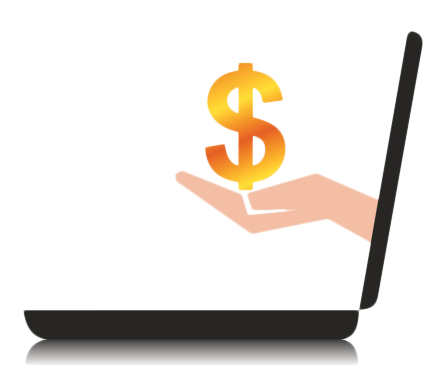Money Mondays: Managing Money in a Digital World
The road to financial independence begins with keeping track of your money. Whether you're beginning a job search, starting a new job or maybe getting a raise, knowing where you stand financially is key to planning your future. Today, we're sharing electronic options for you to think about as you make your financial plan.
 Banking
Banking
Many banks and credit unions offer online banking services and smartphone applications for managing finances. In addition to checking your account balances and transactions, you can use online banking options to:
Transfer money. If you have both checking and savings accounts, many banks will help you set up automatic transfers to move money from checking to savings each month to help you reach your long-term goals. Or you can make transfers manually online by logging into your account and deciding how much you need to transfer between accounts. You can do the same thing to transfer money from savings to checking for emergency expenses, like car repairs and doctor appointments.
Pay bills. You may be able to take care of bills you pay every month online. Ask your utility companies, including cell phone provider, if they have an easy way for you to go online to check your balance and pay your bill.
Stay in the know. Many banks let you set up text message and email alerts so that you can find out as soon as your accounts reach a certain amount. This can help you consider your spending habits and be sure you have enough funds in your account to pay for important expenses. As you transition to work and start earning a paycheck, you can check to see if your bank will send you account alerts. For example, you can set alerts for maximum or minimum amounts.
Budgeting
As you transition to work and start earning a paycheck, digital tools may help you set, track and reach savings goals. Both MyMoney.gov and AmericaSaves.org offer tools to help create a budget. Use their calculators and checklists to identify your monthly income and your set monthly expenses, like rent, car payments, car insurance and more. Then, you can create savings and spending plans to help you reach monthly savings goals.
You can also create debt trackers, so if you're paying off a loan, you can find out how much of your monthly payments go toward paying off the principal loan amount or toward loan interest. This can help you stay on track with paying or make a plan to pay off loans more quickly if you're able.
Online and mobile accessibility
Using mobile and online banking options may also offer you more accessibility. Because you can log into your account remotely, you can control your money without visiting the bank. For people who are blind or have low-vision, requesting account statements in Braille or writing checks can prove difficult. However, online access to accounts and screen reader technology offer the ability to check account balances or pay bills more easily and privately. People who are deaf or hard of hearing can chat with bank representatives via instant-message and make electronic requests to manage accounts. With more accessibility options, you can feel more confident about how you manage your money.
Additional resources
About Ticket to Work
Social Security's Ticket program supports career development for people ages 18 through 64 who receive Social Security disability benefits (SSI or SSDI) and want to work. The Ticket program is free and voluntary. It helps people with disabilities move toward financial independence and connects them with the services and support they need to succeed in the workforce.
Learn More
To learn more about the Ticket program, visit www.ssa.gov/work. You can also call the Ticket to Work Help Line at 866-968-7842 or 866-833-2967 (TTY) Monday through Friday, 8 a.m. to 8 p.m. ET. Ask a representative to send you a list of service providers or find providers on your own with the Ticket program Find Help tool.